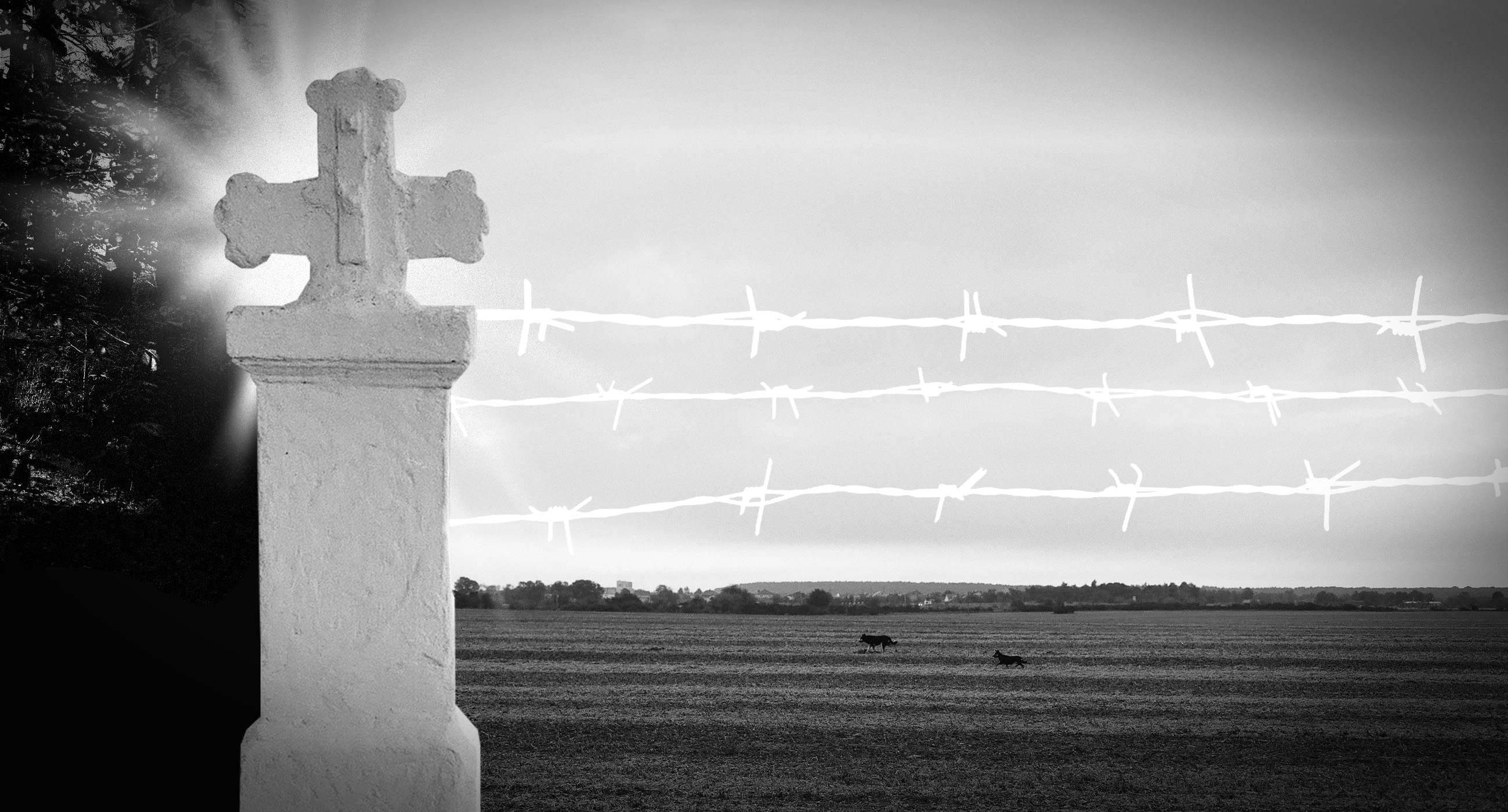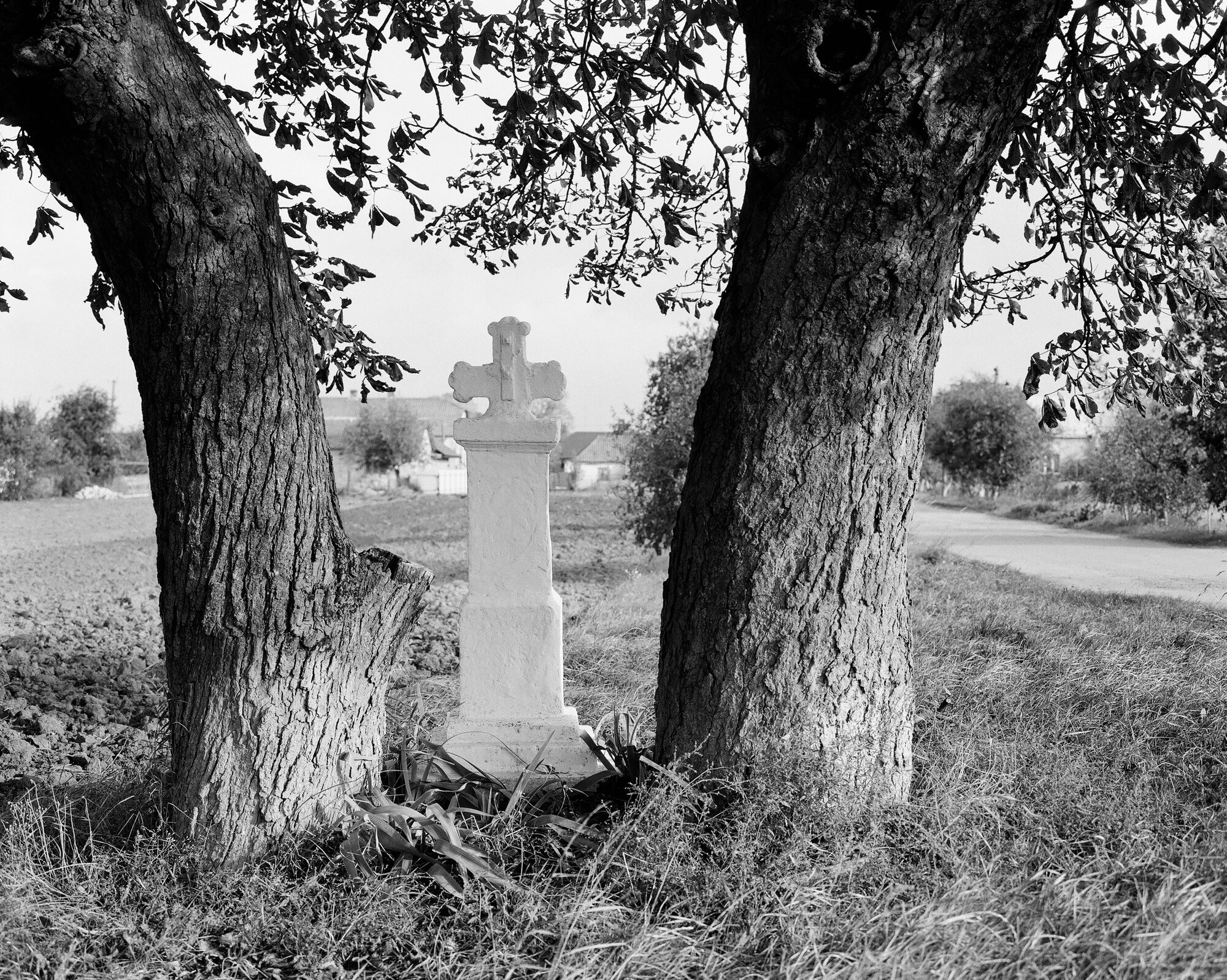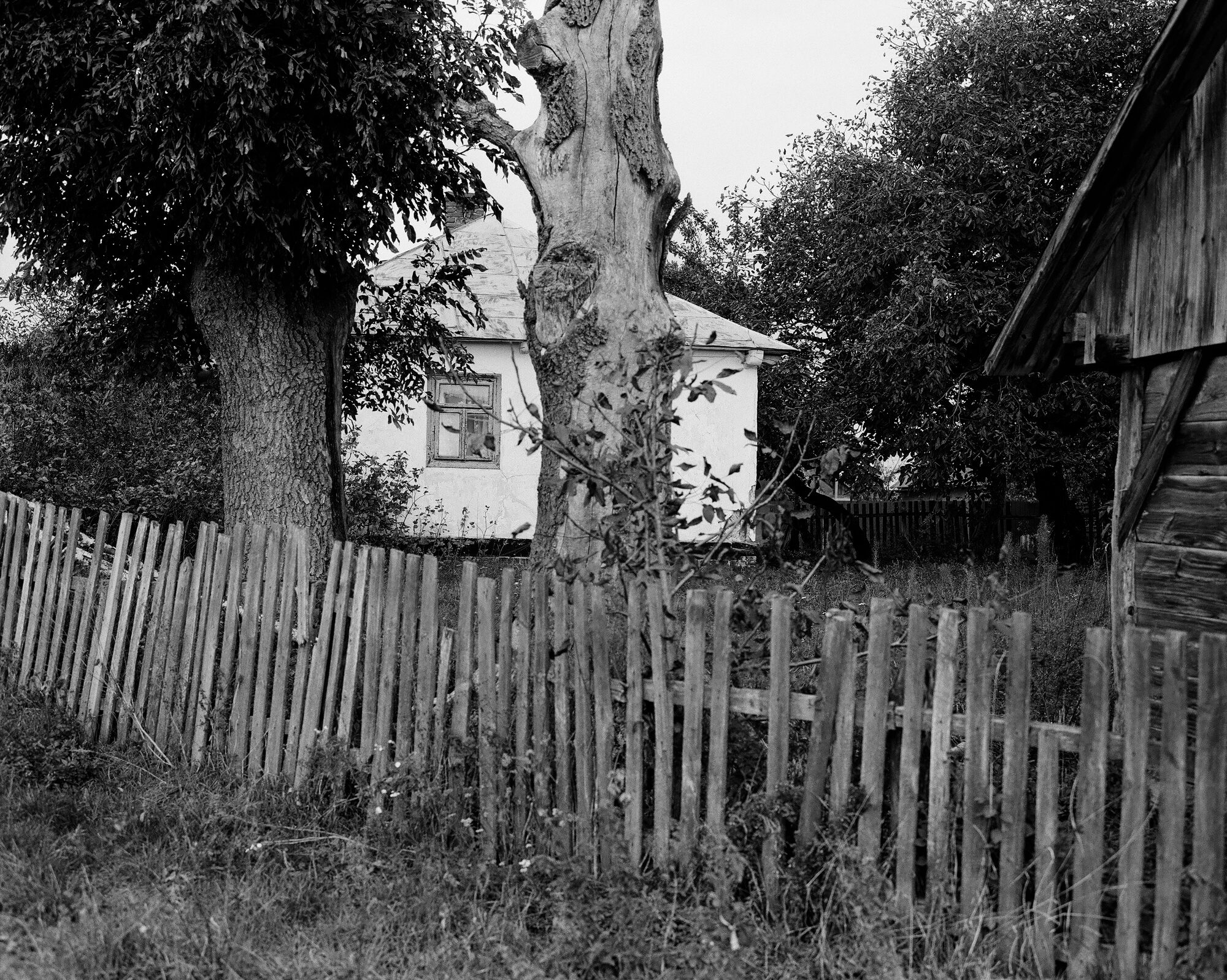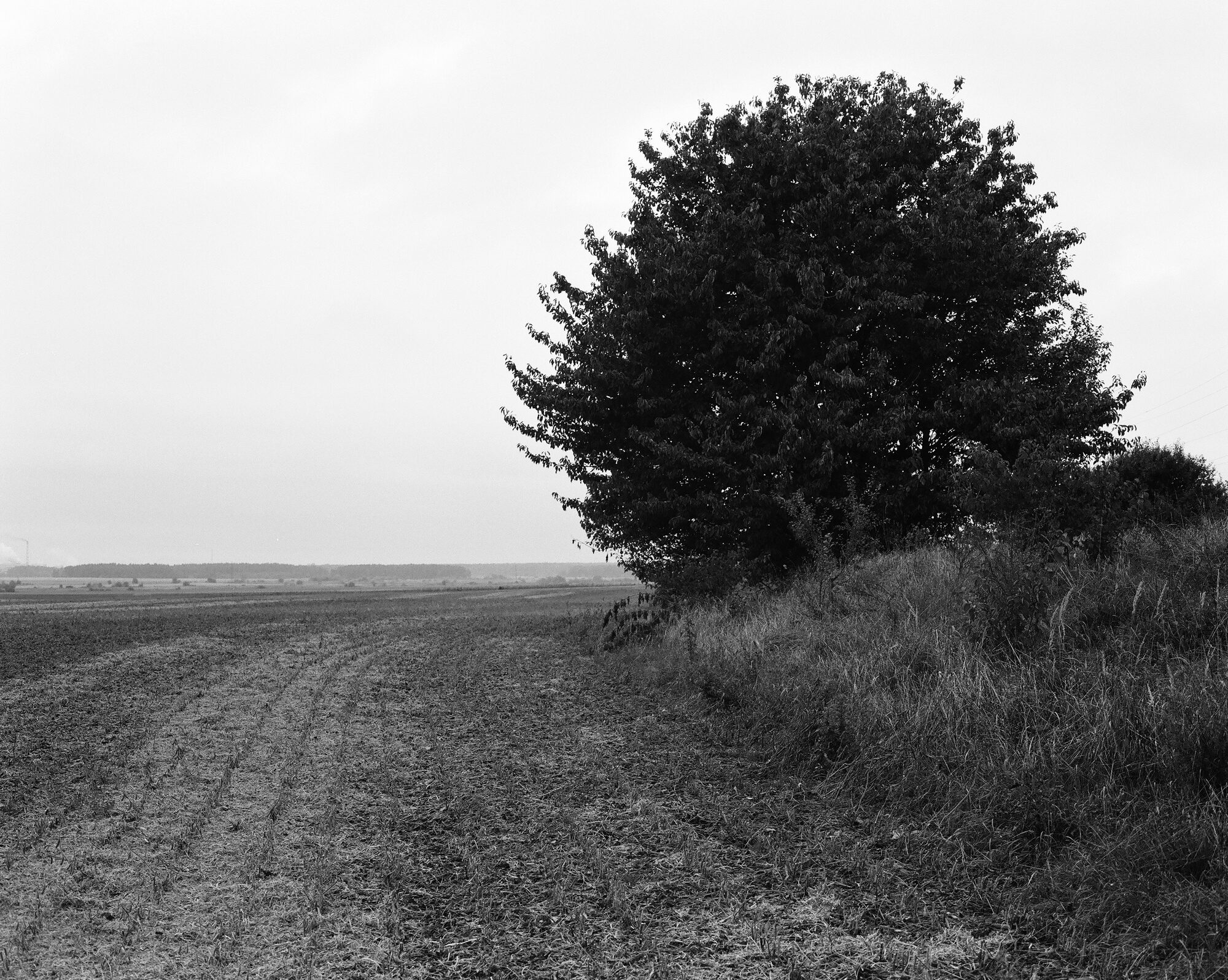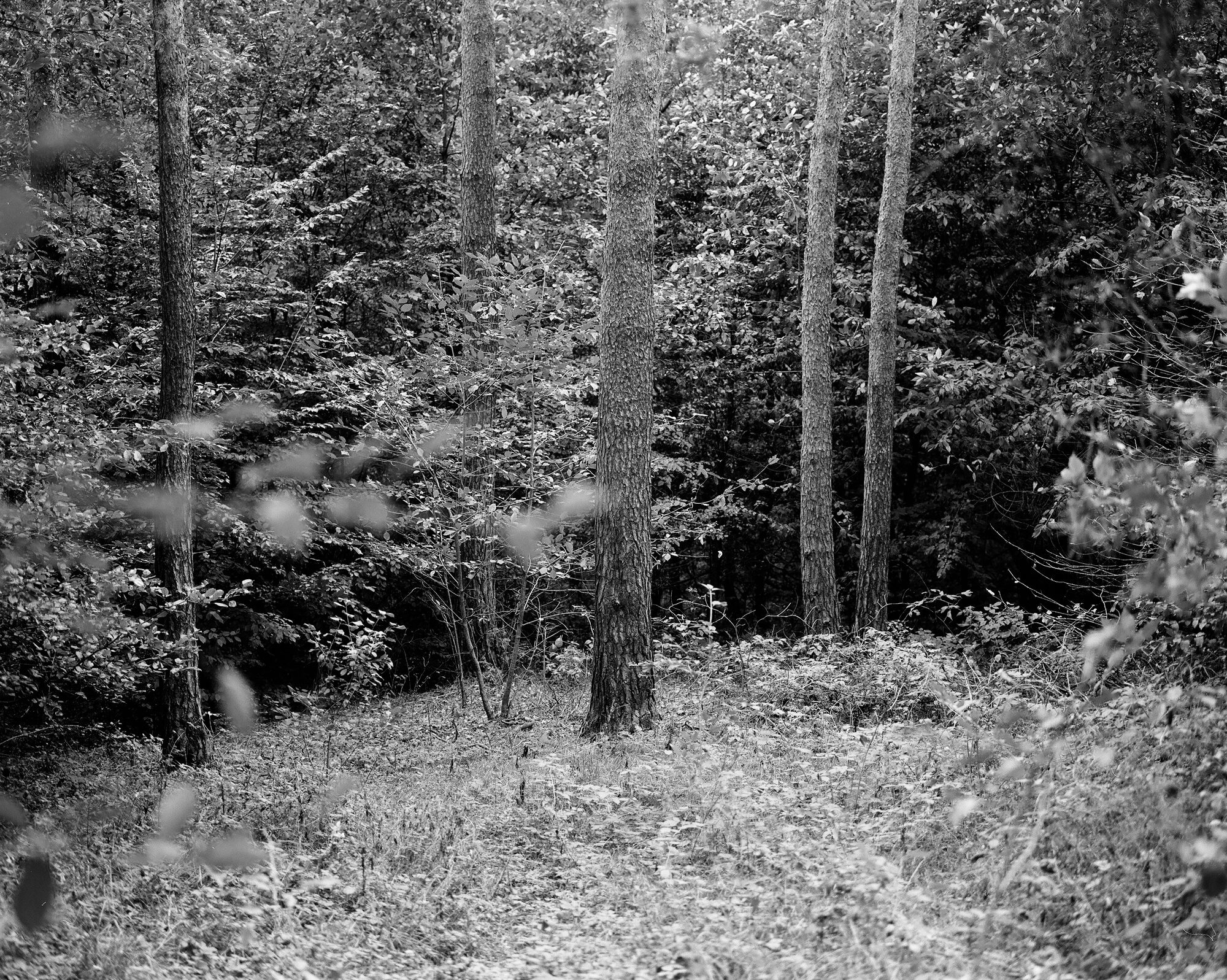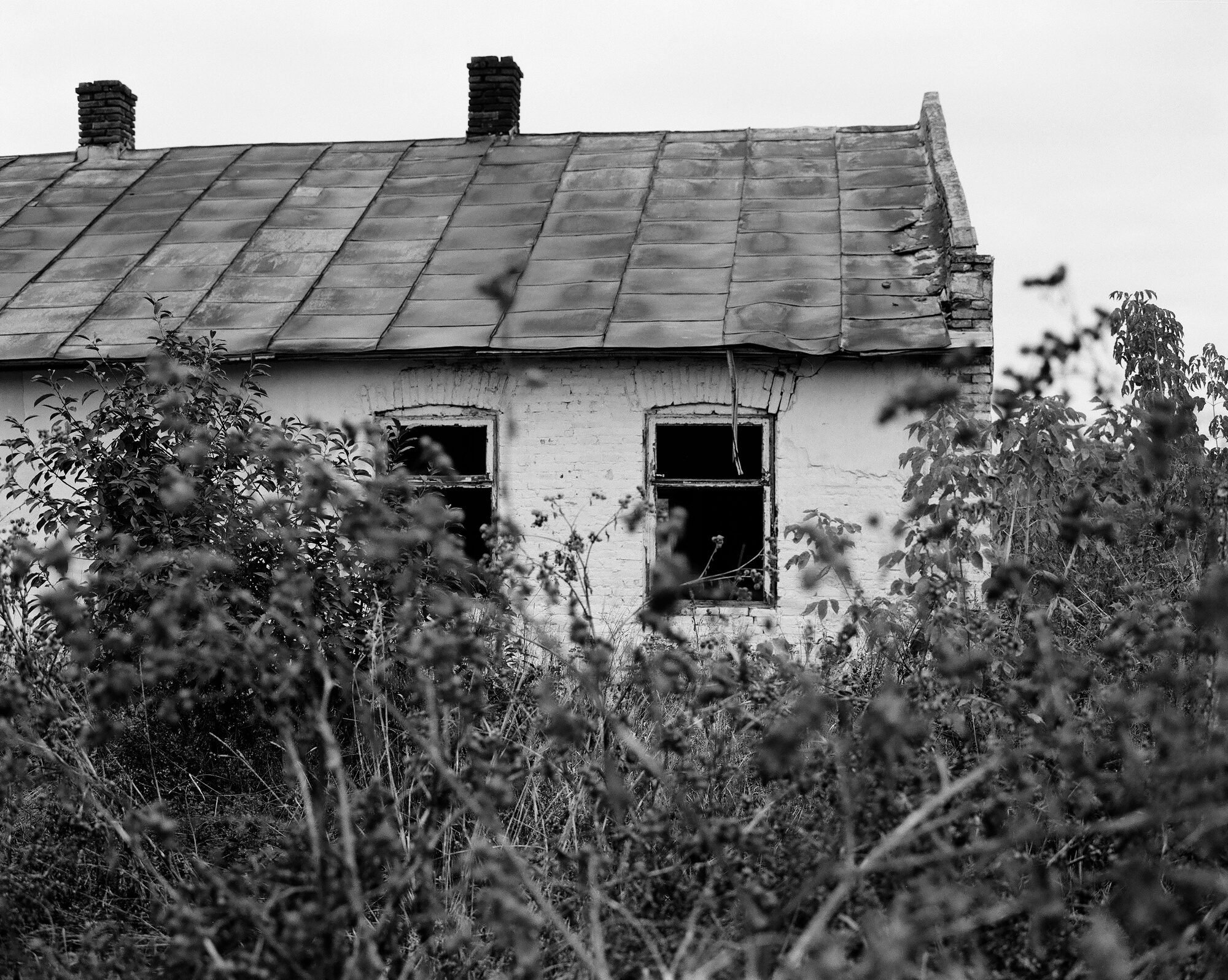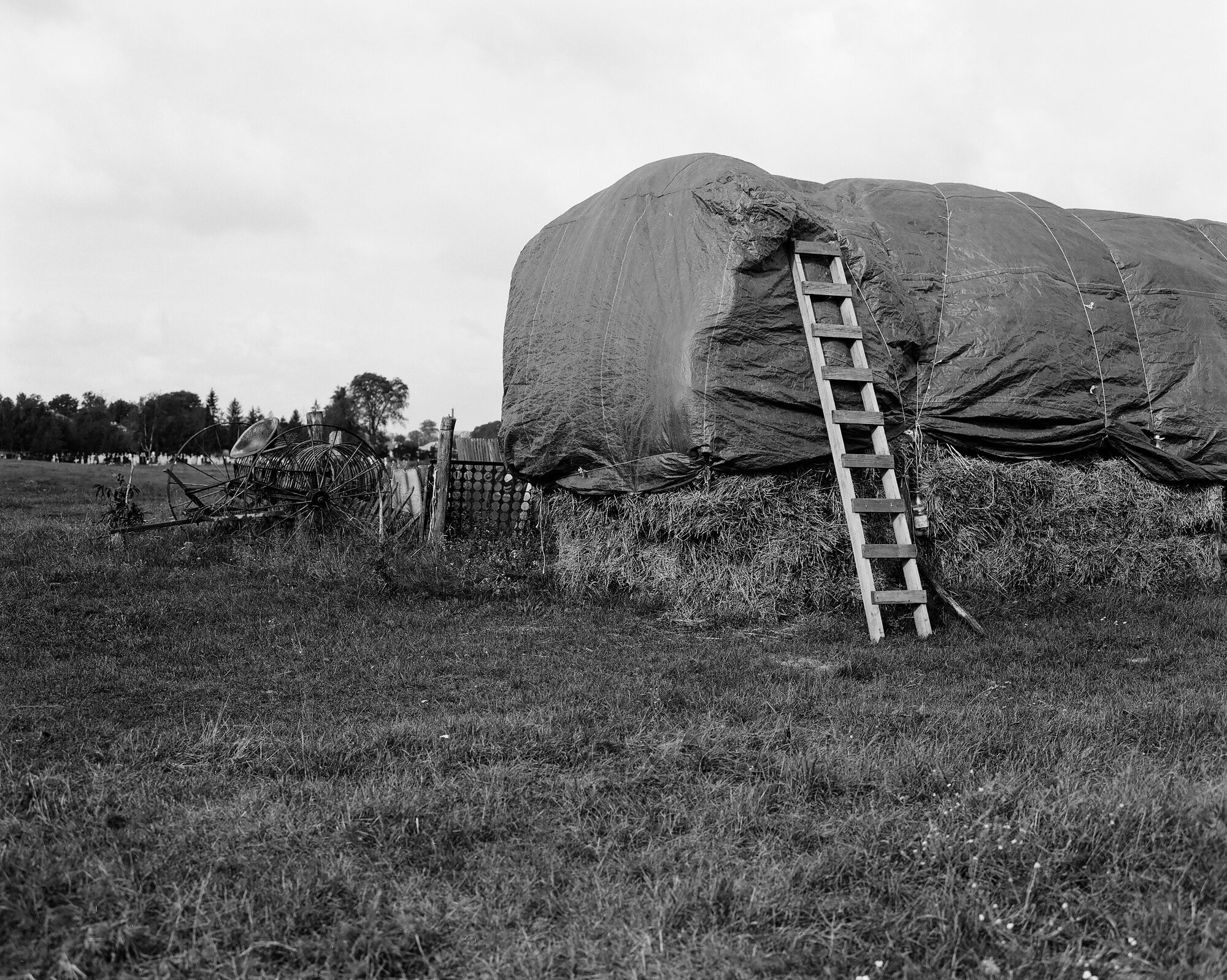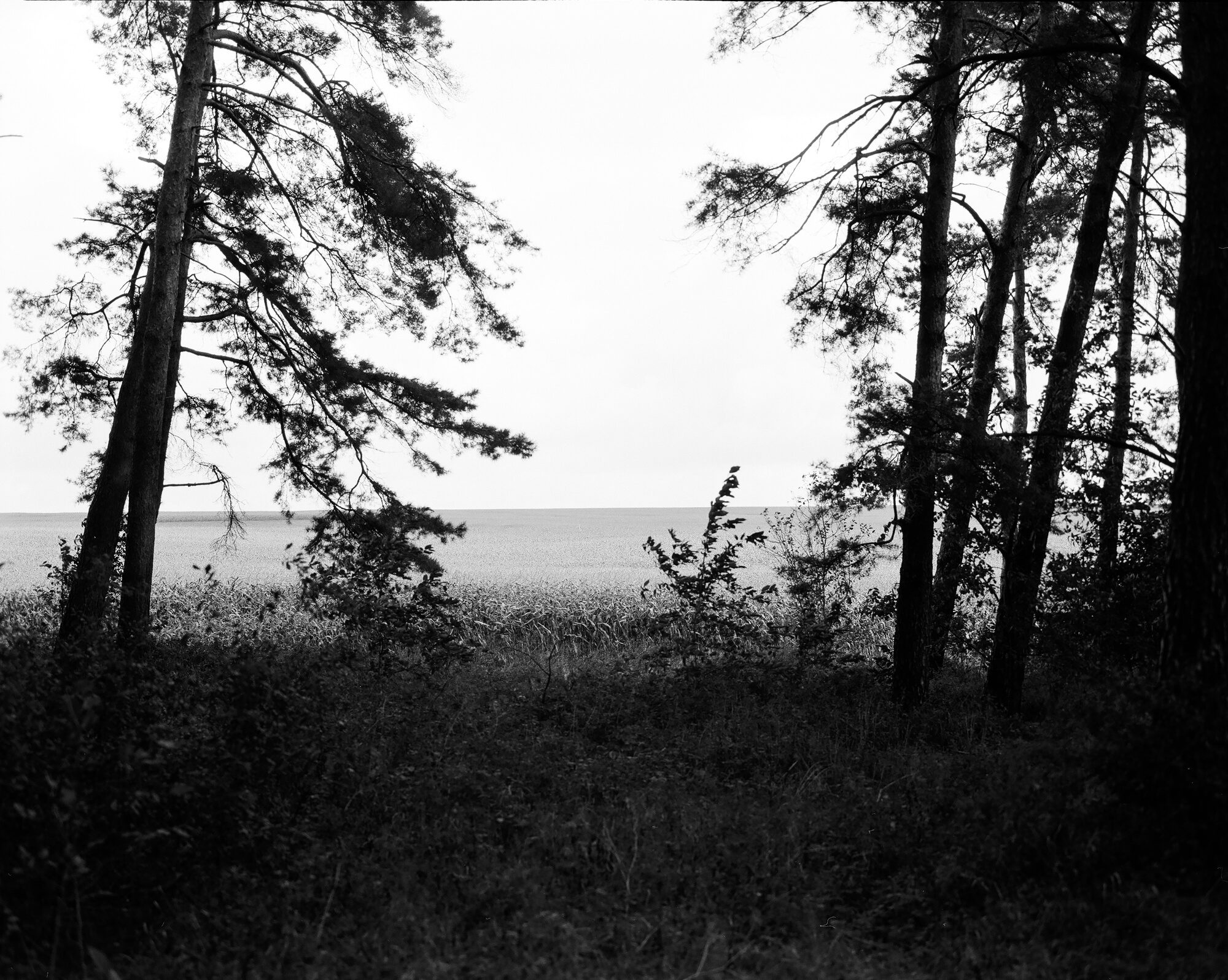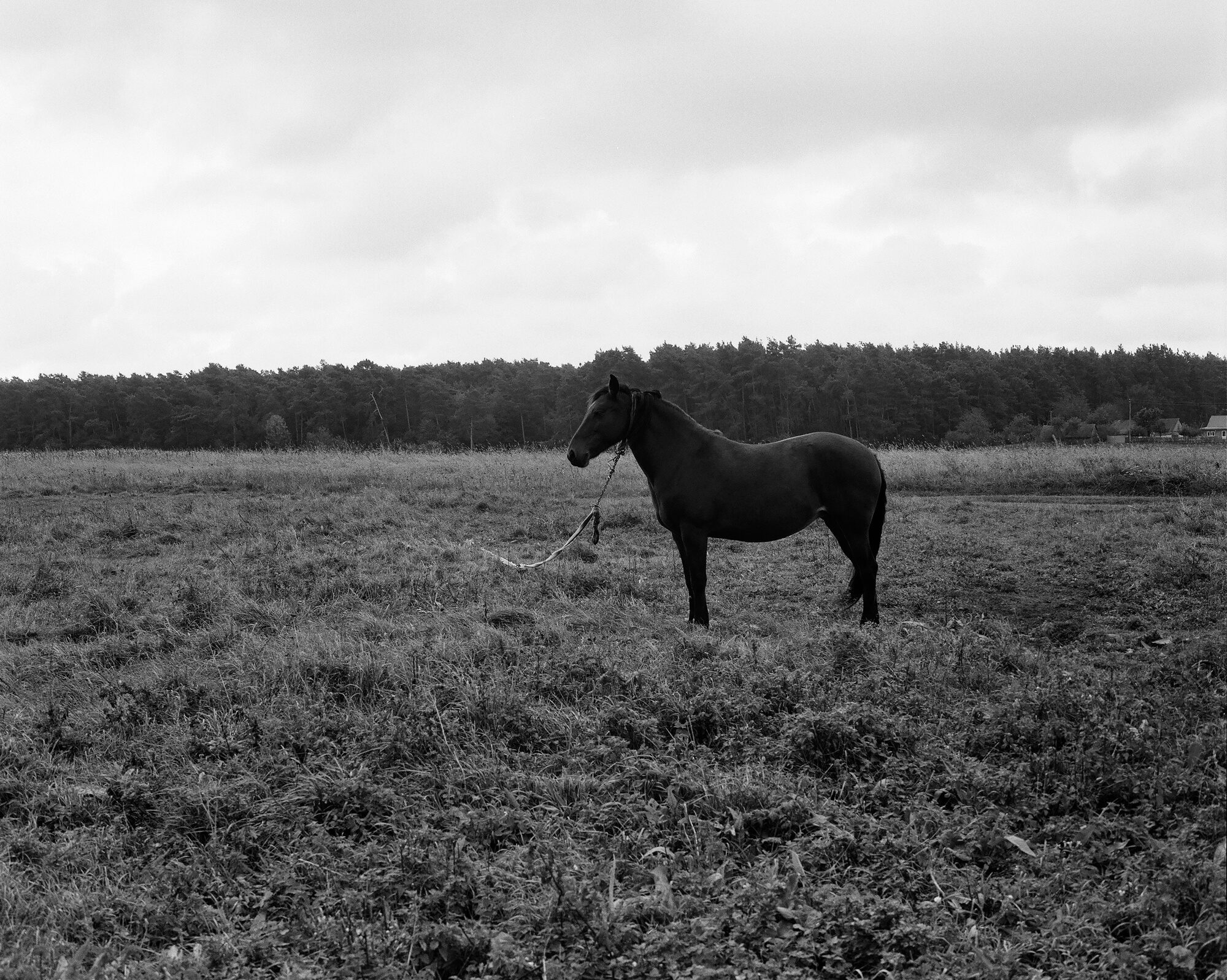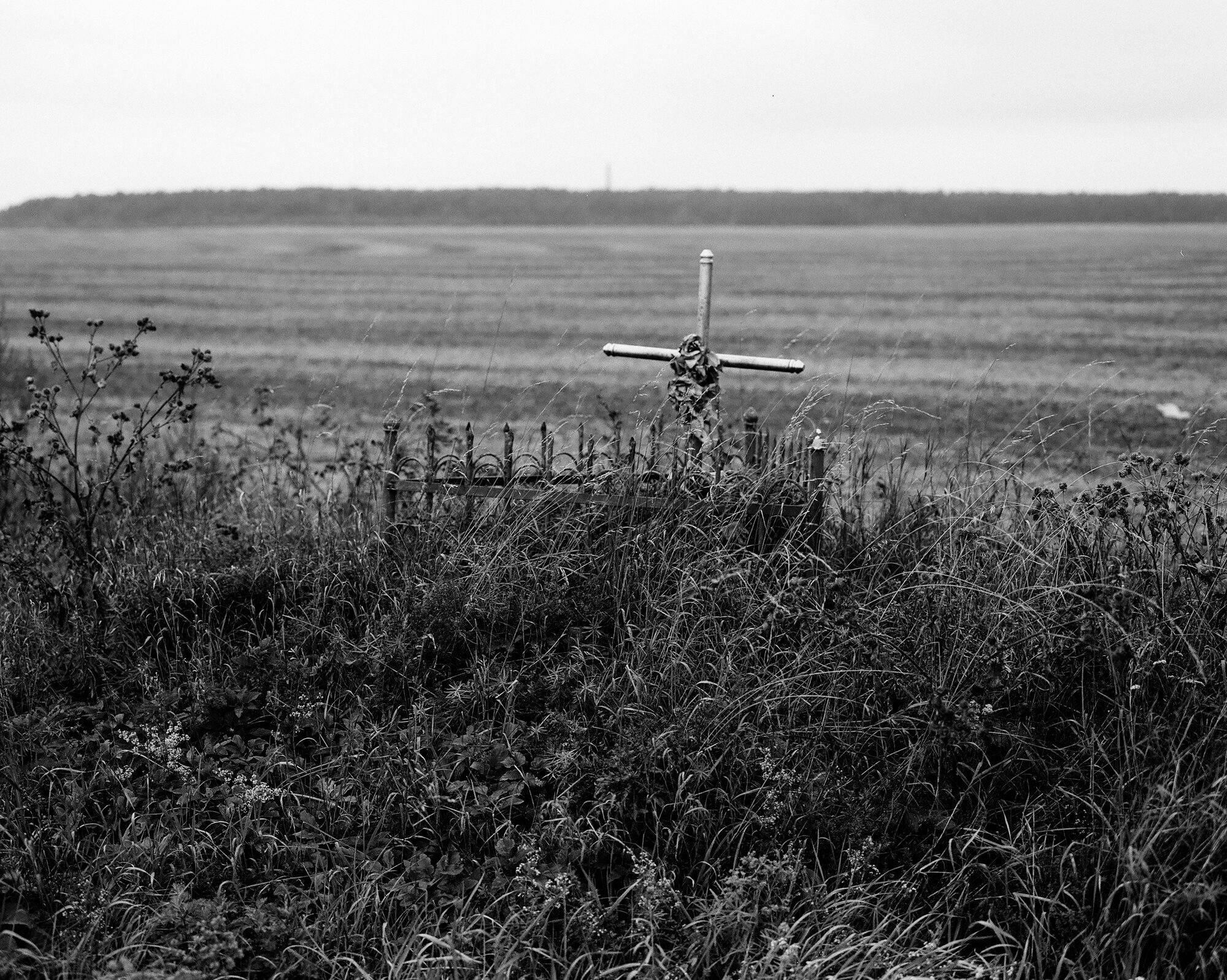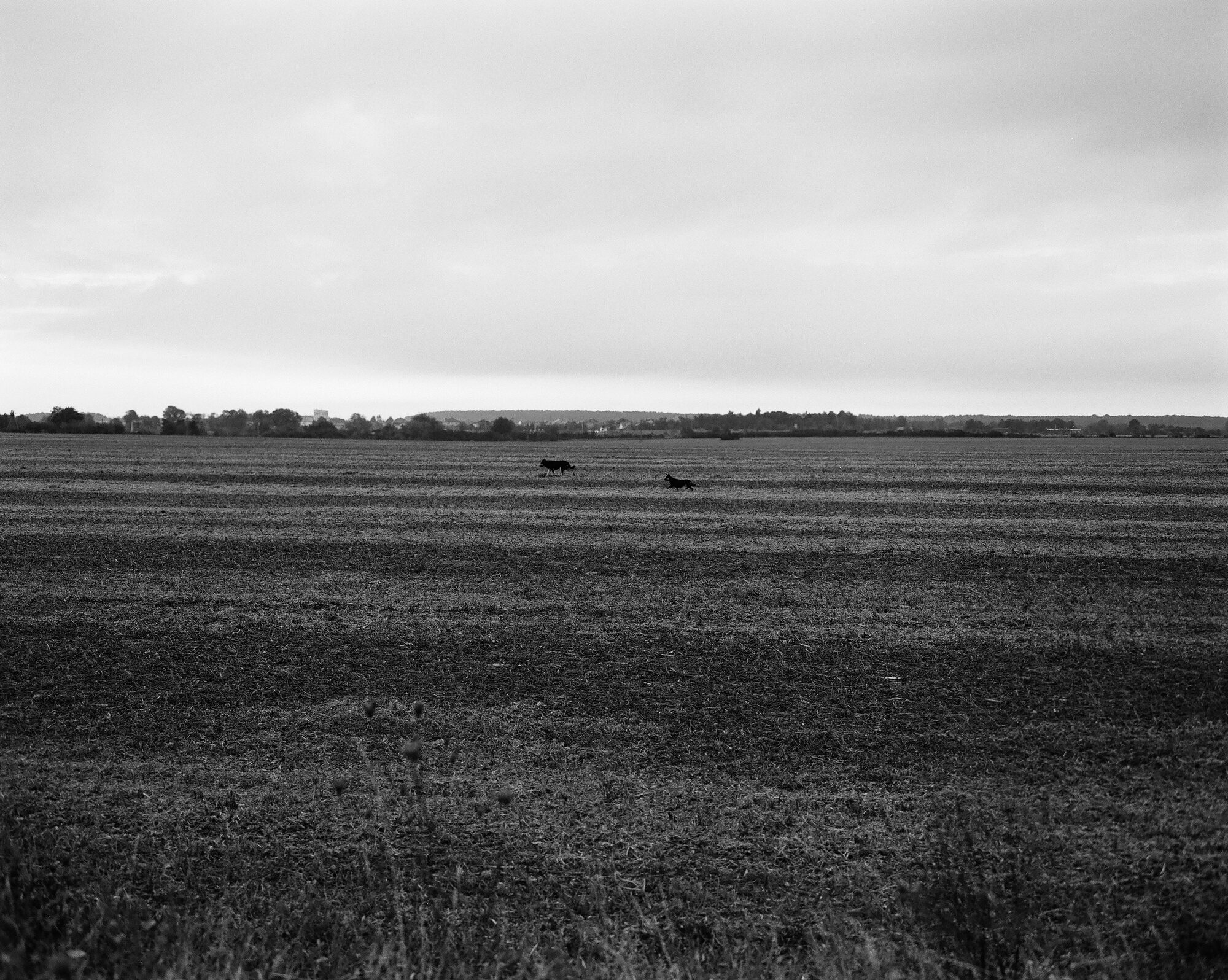On October 21, 1947, 12-year-old Mykhailo Kutsiaba from the village of Piratyn in the Lviv region escaped repression by running away. Like the protagonist of Jerzy Kosinski’s book The Painted Bird, Mykhailo wandered through neighboring villages looking for shelter. His family, as well as thousands of other families from the western regions of the Ukrainian SSR, became the victim of the Soviet government’s carefully planned Operation West, the largest mass resettlement of Ukrainians to Siberia. Zaborona spoke with Mykhailo, now 86, and tells his story from escape and wandering through friends and relatives to his forced relocation to Russia. Later, in the Kemerovo region, he got married and started a family. After more than 10 years in exile, Mykhailo returned to Lviv region, where he lives to this day.
І
I don’t know if it’s luck or misfortune, but I was born into a family that was always suffering for Ukraine.
My uncle Mykhailo (my father’s brother, born in 1911) was an active member of the Ukrainian Nationalist Organization. In 1934, he was handed over to Polish gendarmes in the village of Synkiv [Polish territory until 1939, Ternopil Region today]. During the arrest, a Polish policeman named Bolyavenda took him outside and shot him. They did not allow burying my uncle in his native village of Piratyn, 3 kilometers away, and told to bury him in a corner of the cemetery, where people rarely went.
In 1935, I was born, and I was called Mykhailo, the name of my murdered uncle. I had a brother Vasyl (born in 1928), a sister Nastia (born in 1925), a brother Stepan (born in 1930, died young), and in 1941 my sister Maria was born.
In 1942, my brother Vasyl and my father Prokop (born in 1905) were sent to Germany for forced labor. After the war, my brother was imprisoned in a camp in the American zone, and my father joined the Ukrainian Insurgent Army (UPA) and died in Czechoslovakia in 1945. At the same time, the Soviet commissars in the American zone managed to convince my brother Vasyl to return home, and we were happy.

Pyratyn village, Lviv region, October 2023. Photo: Pavlo Bishko / Zaborona
My brother spent a year at home in Piratyn.
One evening in 1946 Vasyl said: “I have to go.” Our mother replied, crying: “Where will you go, son? You will ruin yourself and us.” “I’m going to liberate Ukraine,” he replied. “I’ll lie down on the doorstep, and you won’t step over me,” said the mother. Vasyl knelt down and said: “Mom, don’t lay down. I have to go.” Mother got up, made him a cross pray and kissed him. He packed his bag and left the house.
We did not hear a word from him since.
However, in May 1947, he was arrested in our village by the NKVD. They brought him home and searched the house: shook out the flowerpots, tore up the pillows and featherbeds. A senior member of the NKVD team said [in Russian]: “If we find even a single fired cartridge, we will lock you all in the barn and set it on fire, you Bandera scum!” But they didn’t find anything. And Vasyl was taken away.
We never saw him again.
II
In October 1947, a week before the deportation, someone killed our dog in the yard. He was tethered and barked at everyone in different ways, so we could recognize who was coming. One morning we saw him lying with a broken head, a wooden club next to him.
On October 22, at dawn, my mother got up to milk the cow. She opened the door, and a sentry with a gun was standing on the doorstep. He followed her, and when they returned, he said: “You’re going to Siberia!”
“What for?” my mother asked.
“For your son.”
Then five people surrounded our house. The senior lieutenant said: “Pack a bag of clothes for each family member. Take a pillow and a featherbed if you have one, because it will be cold.” Then he sat down at a table and made a list of our possessions: one horse, two cows, eight sheep, two pigs, many chickens and ducks.

Pyratyn village, Lviv region, October 2023. Photo: Pavlo Bishko / Zaborona
Earlier, my mother gave her boots for repair. The shoemaker lived about five hundred meters away. So my mom said to me: “Go get my boots. Otherwise, I will go to Siberia barefoot.”
A soldier followed me and said [in Russian]: “Don’t run away, or I’ll shoot.” So I was not running away.
I came to the shoemaker’s shop, knocked on the window, and the lady came out. She said: “Your mother’s boots have not been repaired yet. But I will give my shoes to your mother. And when hers are repaired, I’ll wear them.”
She saw that a sentry was standing behind me and asked: “Are they taking you away?” And the soldier said to me: “Don’t talk!” So I just nodded.
III
They were taking my grandfather Danylo, my mother Justyna, my sisters Nastia and Maria, and me. We all lived together.
When we had packed all our things, a ZIL-150 truck arrived. We loaded several bags of things. My grandfather slaughtered some ducks for the road, and my mother baked bread. I also packed my books and notebooks in a bag. The officer said: “Take it! You will go to school there.”
Before we left, my grandfather made the cross pray at the house and said: “Children, take a good look at your house. You will be back, and I am old, and will never come back here.”
It was a real fall already, with slush and drizzle. We crossed the valley and the car stopped at the next house. Another family was being loaded in. Not everyone though: one of them was not taken because he was already a Komsomol member and worked as a teacher, and the other one married a Moscovite in 1939 (he did not return from the war) and bore his surname.

Near the road to the village of Stanyn, Lviv region, October 2023. Photo: Pavlo Bishko / Zaborona
While they were being loaded, I whispered to my mother: “Mom, I’m running away.”
My mom said: “Run away, maybe you will survive alone. Who knows where we are going.”
The sentry standing next to us turned away for a moment. I climbed over the side of the truck, stepped on the wheel and took off… I ran through the open gate and the yard, past the barn to a fence with hay, stopped and thought: “If they notice, I’ll say I went to the toilet.” Then I heard the engine roar, and the car was gone… Another two hundred meters, and they were loading the third family. It was already a commotion, and no one cared about me.
IV
I decided to go to the neighboring village of Synkiv, where my uncle Mykhailo was killed in 1934.
I was wearing German boots and a heavy winter jacket, because I was going to Siberia. I walked through the swamp in the forest and reached Synkiv. Two elderly people lived there, I used to visit them with my grandfather on holidays.
When I entered the house, Todorka was baking bread and cooking borscht on wood. I said to her: “They were taking us away, and I escaped.”
“Boy, sit down, the borsch will be ready in a moment, eat up,” she said. And added: “They are taking you today, and tomorrow they may come for us.”
I thought I was stupid, I should have gone to their barn, hid and spent the night there. And when the Moscovites will have left the village, I should have returned. And there would be peace. I went out into the yard and stopped at the gate. I thought maybe she would call me back. But she did not come out.

In the sadovyna, Pyratyn village, Lviv region, October 2023. Photo: Pavlo Bishko / Zaborona
Nearby, in the sadovyna [as the locals call the pine forest near Piratyn], there was a place where my friend Yaroslav and I used to bring food to the partisans. His mother, Maryna, cooked it — her brother was a partisan. And one of the groups was hiding in the sadovyna. Yaroslav and I always took the bag that Maryna had prepared. If anyone asked, we were going to pick berries.
I came to the garden. I thought maybe our partisans were here. I called out. There was silence. I went to the next woods and shouted too — no one there either.
Not far from there, over the mountain, was the pasture of my village. I thought: I’ll go there, if there are cattle and shepherds, I’ll go to my village with them. And I already had a place to stay: three of my mother’s sisters lived there.
At that time, 26 families have been taken away from my village of Piratyn. At first, they were kept near the village council. There was so much noise, shouting, and screaming. Dogs barking, people shouting, crying, saying goodbye to each other.

An abandoned house near Radekhiv, Lviv region, October 2023. Photo: Pavlo Bishko / Zaborona
When I came to the pasture, the cattle and shepherds had already gone to the village. I drank water from the well and went on to the empty houses nearby, where Poles who had been evicted to Poland used to live. I approached the houses and sat down, tired, on the doorstep. Suddenly, in the garden across the street, I heard a crack — a branch snapped. And a voice: “Who is there?”
I identified myself.
Four men came with assault rifles on their chests. One of them was Safat Bykh (call sign “Yarko”), to whom I brought food to the garden. I told him everything and said: “Take me with you. Wherever you are, I’ll be there.”
He said: “No, you’re not coming with us. We are heading for death. We will fight until the end of our lives. And you have to live. You have to see what is happening so that someday, in your old age, you can tell the truth to your grandchildren, and if you wait, to your great-grandchildren.”
He knew this place, probably spent days or nights here. An old ladder was leaning on the house. He said: “Get inside and push the ladder back. Dig in the hay and spend the night there. And in the morning, go to the village of Stanyna. This place is full of Moscovites. And if I need you, I’ll call for you.”

Pyratyn village, Lviv region, October 2023. Photo: Pavlo Bishko / Zaborona
They left, and I went to bed. Exhausted, I buried myself in the hay and fell into a deep sleep. I woke up at dawn and went to the well, where we always fed the cattle and drank ourselves. I drank and washed my shoes, thinking: “I was so stupid to leave that borscht at Todorka’s. Would be nice to eat it now…”
V
From Stanyn, there were also families taken to Siberia. But when I came back the next day, it was already calm.
At the village end was Aunt Malanka’s house. She was just about to milk the cow when I walked into the yard.
“Oh, what’s wrong?” she asked.
“They took us away,” I answered.
“When?”
“Yesterday.”
“Go inside. You won’t go anywhere from us.”
Then she said to her daughter: “Maryna, take 100 rubles, bread, and a piece of lard. Go to the railroad station, maybe the wagons are still there. You might find them.”
The train was already packed and waiting for the villagers from Sokal. There was no train station in Sokal [in the Lviv region], so the evicted families from there were taken on trucks to Radekhiv. At the station, they were loaded into a train and sent to Siberia with everyone else.

In the sadovyna, Pyratyn village, Lviv region, October 2023. Photo: Pavlo Bishko / Zaborona
Marynka came to the station, where there were still wagons with people. My sister Nastia saw her through the window. Marynka came up to her and said: “Mykhailo is with us. Here are 100 rubles and some food.”
So my whole family went to Siberia, and I stayed behind.
Later, in the archives, in the case of my family’s deportation, I found myself crossed out in pencil on the list of deportees.
VI
I spent the whole winter at my aunt Malanka’s house, until March. In the spring, the Soviet authorities started organizing collective farms in the village. They went from house to house and took each owner to the village council, where they forced them to sign an application to join the collective farm. The first time they took my uncle Yakym, he did not sign. The second time they took him, he did not sign either.
After that, the military came to our yard on trucks. They opened the cellar on their own and took all the potatoes for the collective farm. They also took two horses, a carriage, a plow, and a cart.
“You see, old man!” Malanka said, “Had you signed, maybe this would not have happened.”
“I won’t sign it,” he said firmly.

Pyratyn village, Lviv region, October 2023. Photo: Pavlo Bishko / Zaborona
Yakym did not want to sign up only because he was afraid of our partisans. They used to come in the evening to those who signed up for the collective farm and beat them. One night, our neighbor signed up. We heard screaming and noise. It was the partisans who came to him and beat his ass.
That same evening, the military came to our house again, knocked on the door and said: “Where is the owner?”
“He is not here. They took him to the village council, and he hasn’t come back yet,” Malanka answered.
She opened the door, and the soldiers immediately started looking for Yakym. They went to the barn — it was empty. There was a ladder there. The soldier climbed up and shone a flashlight — empty. They returned to the house. One of them shone a flashlight under the bed where Yakym was hiding:
“Come out!”
“I won’t come out,” my uncle answered.
“Come out, or I’ll shoot!” he rattled his weapon.
“Shoot, for fuck’s sake! Shoot me once, and I will have peace,” Yakym said.
The two soldiers lifted the bed. Yakym stood up. They took him to the village council. He returned only in the morning. He was exhausted and had not slept.
Malanka asked: “Well, did you sign it?”
“I put a cross, because I said I couldn’t write, and they let me go home,” Yakym answered.
That was the end of it. They never came to us again with searches and checks.
VII
One spring, my aunt and uncle had a visit from Zoska, a communicator from my village, Piratyn: “Oh, I found you. I knew where you were.” We sat and talked with her. Malanka was treating us with milk. Zoska was tired, because she had walked 12 kilometers to get to us.
She said: “You know what, Mykhailyna’s Hryts has been made a clerk at the collective farm. He doesn’t have time for the household anymore. So Mykhailina (my mother’s sister) told me that you should go back to Piratyn, live with her and help her around the house. The village is calm now, there are no Moscovites. No one will ask about you.”

On the road to Stanyn village, Lviv region, October 2023. Photo: Pavlo Bishko / Zaborona
Malanka and Yakym were happy because I was starting to bother them. I moved to live with Mykhailina in my native Piratyn. I had my own bambetel, and I helped Mykhaylina with the housework.
And Zoska, when we left [Stanyn], said on the way: “Josaphat (call sign “Yarko”) told me to call you.” He and his group were still underground. Sometimes Zoska would ask me to go where she couldn’t go during the day, so I sometimes helped the partisans, but not much.
In 1952, when Josaphat and his group were killed in a hiding place, Zoska was arrested in the village and tortured to death by the NKVD. Her burial place is unknown.
VIII
All these years I was in touch with my family in Siberia. Mykhailina regularly sent parcels with flour, lard, and feathers to my mother, sisters, and grandfather. My mother was selling it there. Moscovites were eager to buy the feathers because in winter they slept on feathers like on a mattress.
In 1951, a new head of the collective farm named Sarabinovskyi came to Piratyn — a good man who got along with the people.
At that time, I was already 16 years old and handling a tractor plow. I sat on the plows as they were pulled by the tractor across the field. When the tractor approached the end of the field, I would lift the plow with a special handle and, after the tractor turned around, put it back down into the ground. Later, I was sitting in the tractor’s cab, where we had run a wire from the plow handle. We plowed day and night because there was a lack of equipment and a lot of land.
Sarabinovsky approached me with a proposal: “Go get a passport. Then I will be able to send you to a tractor driving course. After graduation, you will work at our collective farm.”
I was given all the necessary documents with a stamp to get a metric at the Radekhiv registry office, after which I could get a passport at the police station. At the registry office, I went into a room where a young woman was sitting. I showed her all the documents and said that I wanted to get a passport. She looked at them and said: “Sit on a bench in the corridor. I’ll write out the metric and call you back.”
I sat on a bench in the corridor for about ten minutes. Suddenly, I saw a young man in civilian clothes walk past me and enter the office. Later, he came out and addressed me: “Are you Kutsyaba?” I nodded. “Follow me.”

Dogs run towards Radekhiv, Lviv region, October 2023. Photo: Pavlo Bishko / Zaborona
We were walking down the stairs when I saw a holster on his belt. “That’s it, I’m in trouble,” I thought. “This woman made a call, and an investigator came to take me to the NKVD.” We came to a square house across the street, went into a small room on the second floor. He put a pistol on the table and asked, “How is it that your whole family is in Siberia and you are here?”
On the way, I was already thinking about what I was going to say. I had to save myself. “I spent the whole summer with my relatives in Stanyn, grazing a cow. And in the fall, before I could return home, my family was already taken away. That’s how I stayed with my relatives.”
I thought, come what may. I couldn’t say that I ran away.
“And what are you going to do now?” he asked.
“I will get a passport and go to my family. I have nothing else to do here.”
“Are you telling the truth?”
“Yes.”
“If you don’t leave by yourself, we will convoy you, like a prisoner.”
“I’m going myself,” I said.
“Are you sure?”
“Yes.”
He wrote a protocol of our conversation, which I signed. He said: “Go get the metric and leave the village in 10 days. I want you to go to your family. Do you understand?”
I understood.
When I came back, the woman in the registry office had already prepared my metric. And in the village council, when I returned to the village, the secretary said: “I received a call and was told to prepare a document for you, in which we send you for permanent residence to your parents in the Kemerovo region, the city of Prokopyevsk, Yasnaya Polyana. You will get your passport there.”
It was August 2, 1951, and I left the village on August 10. Mykhailina gave me money for a ticket.
Mykhailo Kutsiaba lived in Siberia for over 10 years. There he received a passport and graduated from high school. He worked as a carpenter, a car mechanic, and a truck driver. He met his wife there, and his two children were born there.
I became interested in his persona primarily because of his photographic work. In Siberia, he documented his family with his own camera, as well as many repressed Ukrainians who lived in nearby. In Siberia, Mykhailo printed the photos in a barn. To do this, he made a wooden case for a red-light lamp, which he still has.
Today, Mykhailo Kutsiaba lives in Sokal with his granddaughter and great-grandchildren, in the house he and his wife built after returning from Siberia in the 1960s.

